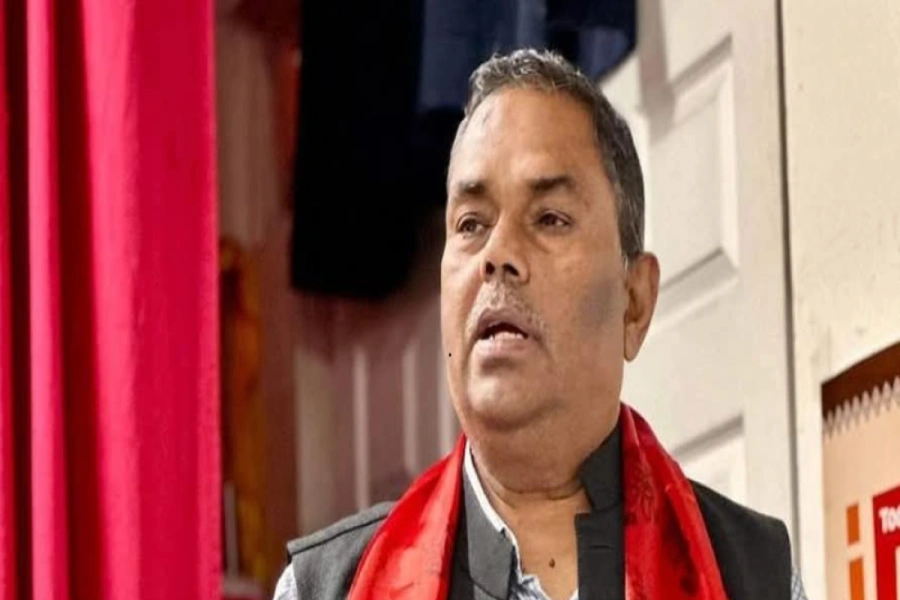The prime minister and the president of Nepal were among the officials that Indian Foreign Secretary Vikram Misri met with during his recent official visit to Nepal. Will the foreign minister of Nepal be able to meet the prime minister of India, several Nepalese observers had questioned on social media. Such remarks would seem reasonable given that equality is the fundamental tenet of sovereignty for any nation engaged in diplomatic or bilateral ties. Nepal maintains bilateral links with several western nations, as well as Asian countries whose delegates are frequently on visit to Nepal; they have meetings with any Nepalese leader they like to meet. A few days after the Indian foreign secretary returned from his visit to Nepal, the Minister for Foreign Affairs of Nepal, Arzu Rana Deuba, paid an official visit to India. She had a courtesy meeting with Indian Prime Minister Narendra Modi in addition to meeting her counterpart, Dr. S. Jaishankar, India's external affairs minister. It would not be an exaggeration to say that the first foreign official visit of Nepal's foreign minister after the recent change of power in Nepali politics was a success. Given South Asia's political unrest, how successful was Dr. Arzu's visit to India? This article delves around this particular issue.
White-Oil saga
Both countries acknowledged the advancements achieved in the mutually beneficial cooperation in the power sector, wherein Nepal is now able to export electricity at a capacity of about 1000 MW, hence generating clean energy for India and an extra stream of income for Nepal. Regarding this, the two foreign ministers mentioned the extraordinary prospects of collaboration in the energy sector that would arise with the execution of the Long Term Power Trade Agreement. For years, we have maintained that Nepal has the second-highest hydropower potential in the world, after Brazil, with 83000 megawatts. But Nepal’s realization of hydropower potential was pathetic until a few years ago. Nepal has recently increased its output of electricity and, as of the beginning of 2024, has begun exporting surplus electricity to India during the rainy season. The exports have continued to increase of late, amid the Nepalese foreign minister's visit to India. A 10-year agreement has created an environment for Nepal to export electricity to India. This has also encouraged those who want to invest in hydropower. As this agreement is implemented, it will help reduce the trade deficit between Nepal and India. Nepal prepared 'Energy Vision 2050' in 2013. It aims to meet the country's energy demand in a sustainable manner. It focuses on reducing dependence on imported petroleum products by using indigenous hydropower and other renewable energy sources. Vision 2050 has highlighted hydropower as the primary source of meeting long-term energy needs. It had set a target of producing 4,100 megawatts of electricity by 2020, 11,000 MW by 2030, and 31,000 megawatts by 2050. To achieve these goals, it is estimated that the energy sector should contribute about 2.4 percent to the country's gross domestic product. It is certain that the energy agreement between Nepal and India will prove to be a milestone in order to realize this easily. As a member of the United Nations, Nepal is committed to achieving the goal of sustainable development by 2030. Among the 17 indicators of the Sustainable Development Goals (SDG), number-7 is related to the energy sector in which the goal is to "ensure access to affordable, reliable, sustainable, and modern energy for all.”
While I may be the first woman in this office, I will not be th...

In this context, the Managing Director of Nepal Electricity Authority, Kulman Ghising, excitedly said that the agreement between the two countries will ensure the market for locally produced electricity. "Until now, investors were hesitant, saying that Nepal's electricity market is insecure. This agreement has removed the uncertainty and will surely help local and foreign investors to invite more investment in the sector.”
The "Gulf countries," which have dominated the energy sector because of gas and petroleum, are, as far as we know, reaching the pinnacle of affluence. These nations have advanced to represent renewable energy as an alternative today. Indeed, one industry that has made a substantial and diverse contribution to the general growth of developing nations is hydropower. Nepal should not miss the chance to turn the potential energy from water into "white oil."
More ahead
The foreign ministers of both Nepal and India have talked about prospects for additional cooperation in both new and existing areas of mutually beneficial cooperation as well as reviewing the advancements made in a number of bilateral initiatives and developmental projects. The visit of Nepal's foreign minister to India can be considered a landmark visit after the formation of a new government in Nepal. The focus was on the continuity of the various projects between the two countries and the dynamic progress of multifaceted affairs like: digital spheres, and people-to-people connectivity, infrastructure projects and other initiatives pertaining to cross-border roads, bridges, trains, and other transportation infrastructure, integrated checkpoints, petroleum pipelines, and digital financial connectivity.
Former Prime Minister of India Atal Bihari Vajpayee used to say in a broader context that “it is possible to swap friends but not neighbors.” In 2014, India's Prime Minister Narendra Modi adopted this statement as an integral part of Indian diplomacy as "neighborhood first." And it is even more important in the context of Nepal as both countries have a friendship based on the civilizational connection since time-immemorial.
Having said that, is everything okay between Nepal and India? Of course not. It is imperative that Nepal take decisive diplomatic action to find a solution to any issue, including the long-standing border dispute between the two nations. The current Prime Minister KP Sharma Oli has announced from the Parliament that he will use diplomacy to settle the disagreement with India. Until there is no longer any dispute in relations with Nepal, India's Neighborhood First Policy does not appear to be effective.






































